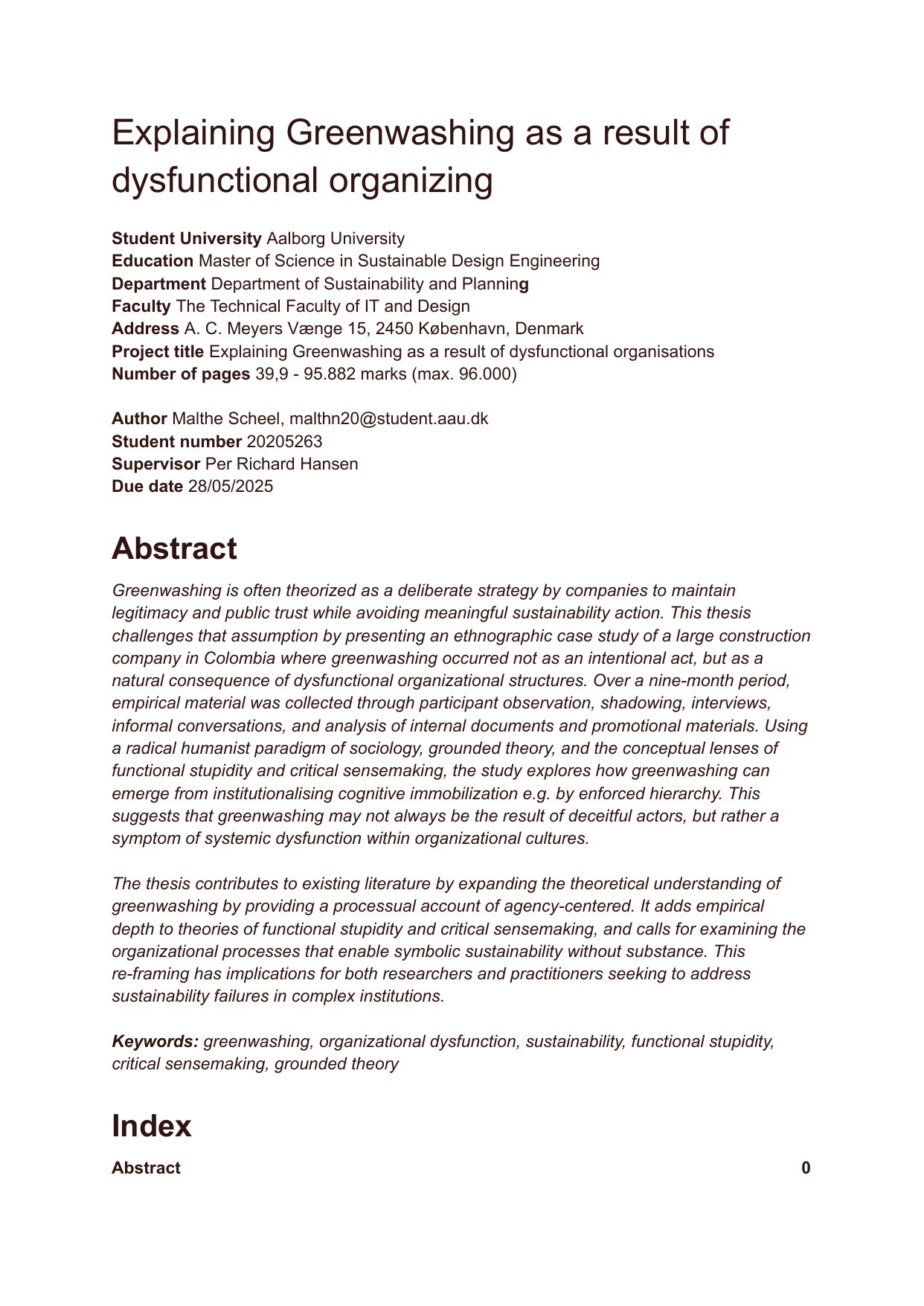
Explaining Greenwashing as a result of dysfunctional organizing
Author
Term
4. Term
Education
Publication year
2025
Submitted on
2025-05-27
Pages
39
Abstract
Greenwashing is often theorized as a deliberate strategy by companies to maintain legitimacy and public trust while avoiding meaningful sustainability action. This thesis challenges that assumption by presenting an ethnographic case study of a large construction company in Colombia where greenwashing occurred not as an intentional act, but as a natural consequence of dysfunctional organizational structures. Over a nine-month period, empirical material was collected through participant observation, shadowing, interviews, informal conversations, and analysis of internal documents and promotional materials. Using a radical humanist paradigm of sociology, grounded theory, and the conceptual lenses of functional stupidity and critical sensemaking, the study explores how greenwashing can emerge from institutionalising cognitive immobilization e.g. by enforced hierarchy. This suggests that greenwashing may not always be the result of deceitful actors, but rather a symptom of systemic dysfunction within organizational cultures. The thesis contributes to existing literature by expanding the theoretical understanding of greenwashing by providing a processual account of agency-centered. It adds empirical depth to theories of functional stupidity and critical sensemaking, and calls for examining the organizational processes that enable symbolic sustainability without substance. This re-framing has implications for both researchers and practitioners seeking to address sustainability failures in complex institutions.
Keywords
Documents
